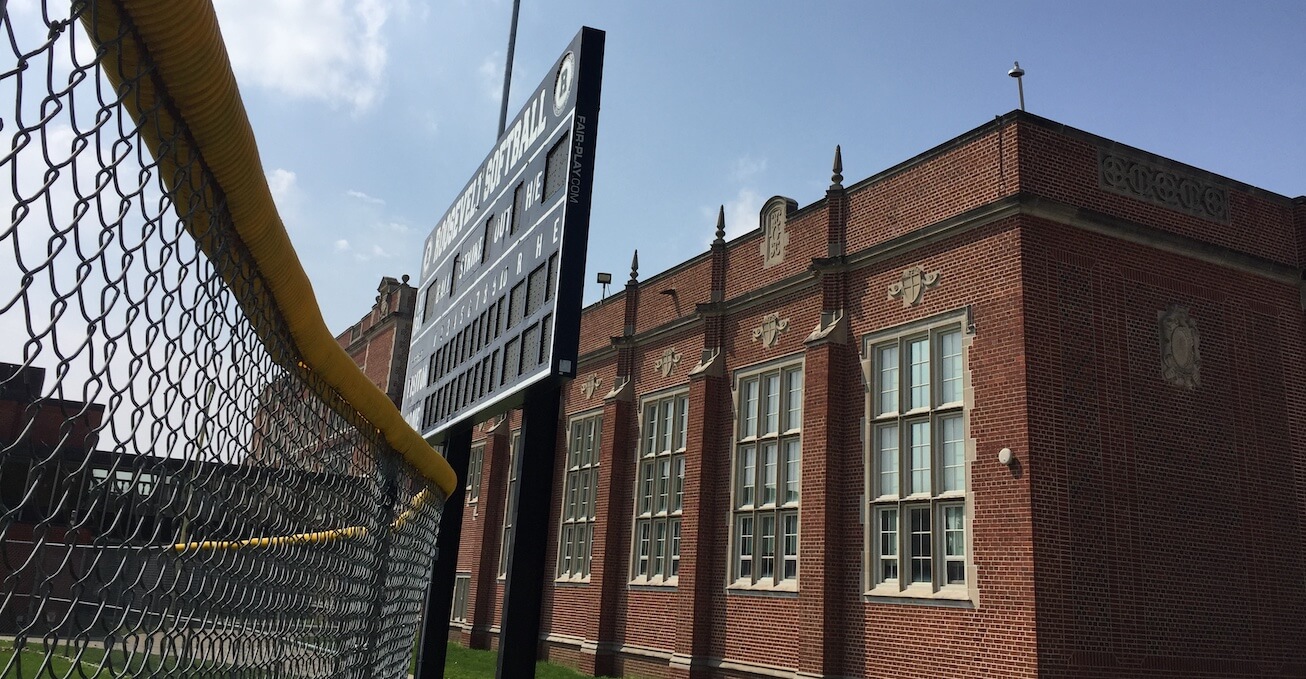
Schools districts struggle in making consequential decisions about returning to learn this fall amid the pandemic. Education is the cornerstone of the state’s future and the economy, yet there is another issue brewing for the Des Moines school district that is causing friction and could trigger a special election.
The issue at hand is the controversy surrounding the board’s decision this past May to build an athletic stadium for the Des Moines district schools in partnership with and at Drake University.
On the one hand, it will provide much more professional facilities to cash-strapped local schools. On the other hand, it means that many games will be played at a central location in Des Moines that is miles away from the neighborhoods where the student athletes and their families live. That has upset some local community members and leaders who have organized against the decision.
A news release from the Des Moines Public Schools Community Stadium and Drake University reads that on November 12, 2019 DMPS and Drake University unveiled plans to develop a new athletic stadium located along Forest Avenue on the Drake campus. The new stadium will serve as the venue for Des Moines Public School’s high school and middle school football and soccer.
[inline-ad id=”2″]
The venue will also provide an on-campus home field for the Bulldogs soccer teams, in addition to other school and community athletic uses. Construction costs for the new stadium are estimated at $19.5 million. DMPS will fund $15 million and Drake University will fund the remaining $4.5 million, donate the land and will manage the stadium. All DMPS board members voted in favor of the new project in May.
In an interview with Iowa Starting Line, Dr. Tom Ahart, DMPS superintendent, said, “The stadium project provides an opportunity for the district to address a number of long-standing athletic facilities needs in a manner that provides equity among schools and sports, while preserving much-needed general fund dollars … This is an example of good stewardship both in terms of general fund and SAVE funds.”
We reached out to the Chair of the Des Moines School Board, Kyrstin Delagardelle, who told us, “I voted in favor of the Community Stadium project due to seeking equity and responsible use of tax dollars.”
[inline-ad id=”3″]
She added that Roosevelt does not have their own stadium, and that any updates to existing stadiums require also updating everything to ADA standards.
Based on a renovations estimate provided to the Board, it would take $60 million to achieve that goal. The document outlined the existing stadiums and includes a conservative estimate to building a stadium for Roosevelt.
Delagardelle went on to say, “For me, weighing the $15 million for the community stadium project against $60 million seemed a fair and smart economy. The community stadium will also provide an equitable space for students across the city to play football and soccer.”
[inline-ad id=”4″]
“I know there are details to be worked out and people are concerned about parking and concessions,” she added. “My role moving forward will be to continue to ensure that parking and concessions include the highest benefit of each booster club and the families and community members attending the games. It’s definitely going to be different, but I also think we have an exciting opportunity to build a unified showing of Des Moines students as part of the community stadium and begin new traditions while still paying respect to the old.”
After concerns voiced by the public, DMPS decided to conduct five public meetings where many community members expressed their opposition to the new stadium and the huge need for repairing the existing sports facilities in all high and middle schools.
The DMPS Board decided to establish an Athletic Facility Committee. This is a time-limited committee with the purpose of providing guidance and recommendations for investments in athletic facilities to address future and current needs.
[inline-ad id=”5″]
Leading the opposition to the Drake project is Dan Pardock, a former Hoover soccer coach and a Hoover parent. He created the Facebook page DMPS-Save our Stadiums, which more than four thousand individuals have joined.
“I don’t think is the right thing to do right now,” Pardock said. He added that the current stadiums are in desperate need of repairs and they would like to see that money go to their existing facilities.
Pardock also expressed this is an issue of school pride.
“There is a lot of community pride wrapped into that, a lot of people who worked very hard to get those stadiums built in the first place and now the district is saying that they can only play there at lower-level games, but the high-level varsity games would be at the new stadium,” he said.
[inline-ad id=”6″]
But other Board members reiterated that the cost for every local school was simply too high, and that this plan would put Des Moines district teams on par with their suburban neighbors.
“When you begin to look at the facilities that exist in Des Moines and you look at the facilities that exist in our suburban school districts, there is a huge inequity, not only in the infrastructure but also in all of the amenities,” said Board member Teree Caldwell-Johnson. “I just think is time that we level the playing field for the 30-plus thousand students in Des Moines Public Schools and create the same sort of equitable facilities that they can use.”
Pardock’s group learned that if they can gather enough signatures on a petition, they can force a public vote on the issue. They gathered 7,120 signatures in two weeks during the pandemic. But there’s now a dispute over how many signatures are actually needed.
“Where we differed with the DMPS School Board is on the number of signatures that are required to call this to a vote,” said Pardock.
[signup_form]
The Save our Stadium group based the eligibility requirements for the special election on the number of signatures gathered in their petition and the Iowa Code. The code specifies that the petition must be signed by eligible electors equal in number to 30% of those voting at the last preceding election of school officials (Iowa Code 423F.4).
This past fall was the first time where the city council, mayor and school board were combined into one. According to this, the school board says the groups needs 7,501 signatures (when counting all voters) and the group behind the petition says it needs only 5,316 signatures based on the number of voters who cast a ballot for school board.
[inline-ad id=”7″]
The school board still has until July 25 to call for a vote if they want to. If they decide not to, Pardock said their organization will take legal action. A special election could take place the second Tuesday in September.
Pardock concluded by saying, “We are very willing to work with the school board and come to a solution that keeps our teams and stadiums where they are at, but unfortunately the board is set on building the stadium and later help with other issues.”
by Claudia Thrane
Posted 7/18/20
Iowa Starting Line is an independently-owned progressive news outlet devoted to providing unique, insightful coverage on Iowa news and politics. We need reader support to continue operating — please donate here. Follow us on Twitter and Facebook for more coverage
Politics

Biden marks Earth Day by announcing $7 billion in solar grants
The Biden administration on Monday announced the recipients of its Solar For All Program, a $7 billion climate program that aims to lower energy...

6 terrifying things that could happen if the Comstock Act is used to target abortion
Does 1873 sound like a really, really long time ago? Well, that’s because it is—but if Republicans and far-right anti-abortion activists have their...
Local News

No more Kum & Go? New owner Maverik of Utah retiring famous brand
Will Kum & Go have come and gone by next year? One new report claims that's the plan by the store's new owners. The Iowa-based convenience store...

Here’s a recap of the biggest headlines Iowa celebs made In 2023
For these famous Iowans, 2023 was a year of controversy, career highlights, and full-circle moments. Here’s how 2023 went for the following Iowans:...




